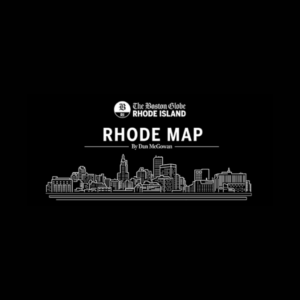By: Dan McGowan,  Boston Globe & The Globe Rhode Island
Boston Globe & The Globe Rhode Island
It’s Black History Month, and the Newport Historical Society just launched a fascinating research project that centers the Black and Indigenous experiences embedded in the City by the Sea’s historical record.
You can check out “Voices from the NHS Archives” for yourself by clicking here, but I asked Rebecca Bertrand, executive director of Newport Historical Society, to tell us more about the project.
Q: This was a project that took more than four years to complete, and you say you reviewed 4,000 church records, business papers, ship logs, and more from the NHS archives. Why was this such an important undertaking?
Bertrand: It took our team four years to build and launch this free, expansive digital archive, but this project is far from complete. The historic narrative of Newport has predominantly centered on the white and the powerful, but the materials we have reviewed, digitized, and added to the database center the lives, stories, and personhood of Black and Indigenous Newporters.
We will continue to add to it for many years to come. Thanks to the support of the van Beuren Charitable Foundation, the example provided by Enslaved.org, and the expertise of dozens of scholars and partners, these records are now available to all — whether you’re a historian, a teacher, a visitor, or just curious about our Newport County community.
Q: You also curated more than 15 stories of people who lived and worked in Newport during the era of slavery. How did you put those stories together?
Bertrand: We examined over 4,000 documents in painstaking detail, digitizing and tagging each item with the names of people, families, businesses, and other details. Many people appeared across a number of documents, allowing our team to curate more complete life stories. With our featured stories section, we wanted to illustrate the kind of narrative that can be built through this in-depth archival research. The 15 features are just the beginning, and we will continue to add to that section as our work continues.
Q: Was there anything you really wanted to find — but couldn’t?
Bertrand: We’re proud of how rich and robust the database is, but we also know that there is so much more to discover. More families, more connections, and more events that helped shape Newport’s history and the city today. In many of the historic documents we study, we see the names of people — including enslaved people — intentionally omitted.
As researchers, it is our job to try to overcome the limitations and biases of the historical record by looking for other documents that might shed light on who these people were. Only 2 percent of our manuscript collection has been digitized, so our small but committed team is going to continue to help make accessible a more complete history of this period.
Q: What’s the long-term goal with this project?
Bertrand: Voices from the NHS Archives is about increasing understanding of and access to history. Through partnerships with Enslaved.org, the Harvard Dataverse, and 10 Million Names , we hope to have a global reach. We also hope the database will be a tool for people to research their ancestors in Newport and encourage them to engage with us in other ways, like through our Black history walking tours or lecture series.
We’re especially excited to host a free exhibition in May to celebrate the stories uncovered through this research project. We are working with three local artists of color who will be creating pieces to depict some of the individuals identified in the database.
Stay tuned for more details, and we hope people will reach out to learn more.
To view this Q&A online, click here.